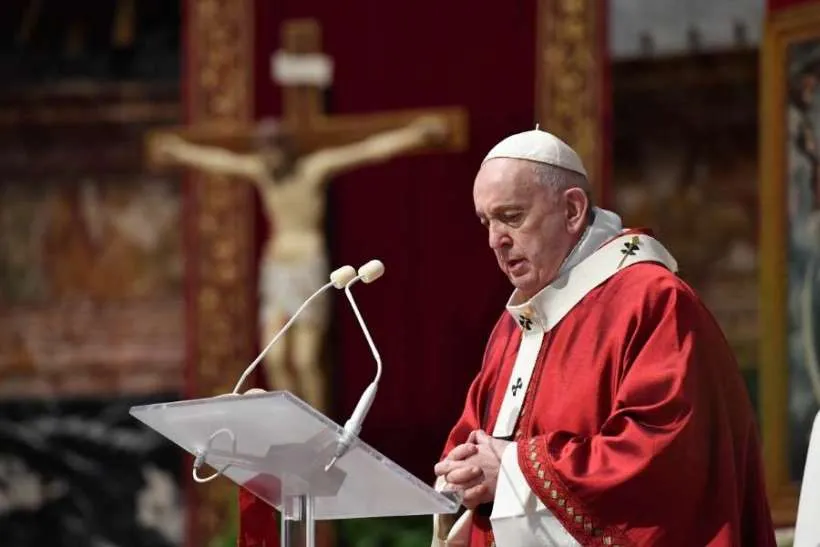Vatican, 01 June, 2020 / 1:13 am (ACI Africa).
Pope Francis urged Catholics to view the Church “with the eyes of the Spirit” as he celebrated Pentecost Sunday Mass in St. Peter’s Basilica.
In his homily May 31, he cautioned against seeing the Church in worldly terms.
He said: “The Spirit comes to us, in our differences and difficulties, to tell us that we have one Lord -- Jesus -- and one Father, and that for this reason we are brothers and sisters.”
“Let us begin anew from here; let us look at the Church with the eyes of the Spirit and not as the world does. The world sees us only as on the right or left, with this ideology, with the other; the Spirit sees us as sons and daughters of the Father and brothers and sisters of Jesus. The world sees conservatives and progressives; the Spirit sees children of God. A worldly gaze sees structures to be made more efficient; a spiritual gaze sees brothers and sisters pleading for mercy.”
Around 50 people attended the Mass in St. Peter’s. They sat spaced apart, with many wearing medical masks, to reduce the chance of spreading the coronavirus, which has claimed more than 369,000 lives worldwide as of May 31.







